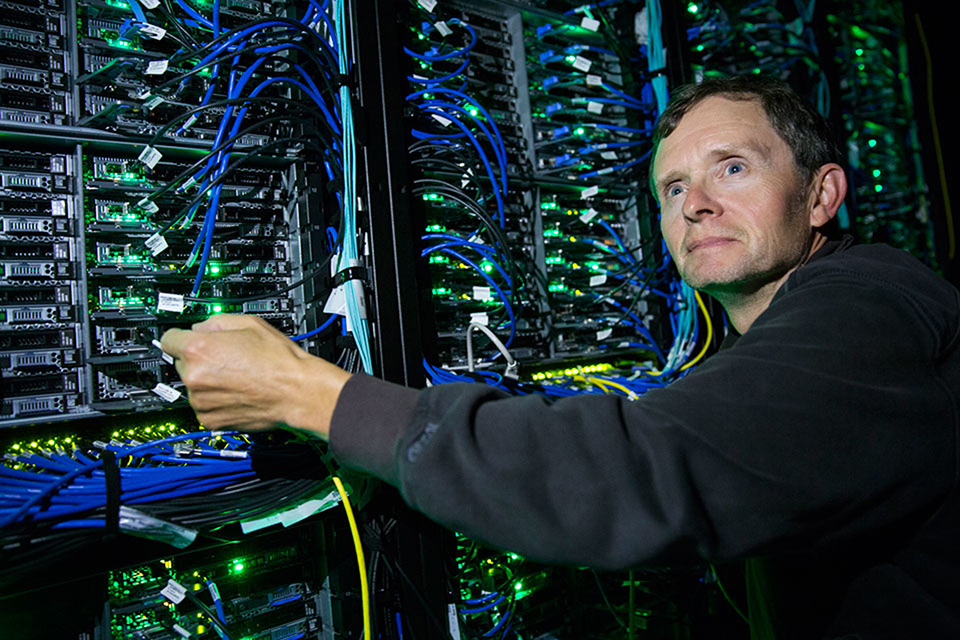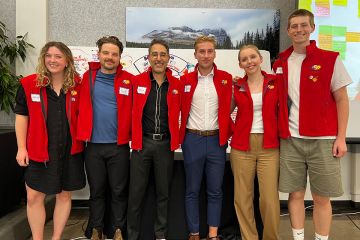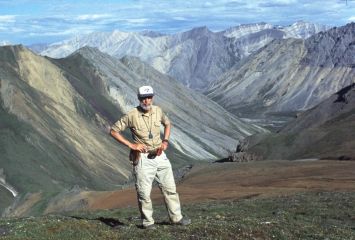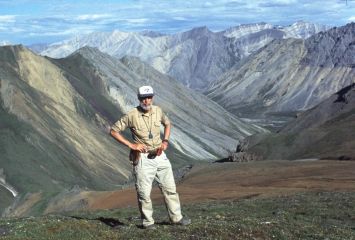Clues to the cosmos, cognition, cancer, climate and beyond
Science, Medical Sciences, Engineering

From ground-breaking research in particle and astrophysics to innovative studies in neuroscience, human health, energy modelling and beyond, UVic’s Arbutus Cloud has revolutionized how scientists process, share and store massive data sets.
With processing speeds thousands of times faster than a desktop computer, Arbutus Cloud serves as the cornerstone for more than 1,000 research teams across Canada and more than three million end-users worldwide.
The projects below are supported by the $16.4 million infrastructure upgrade announced on Monday by the Digital Alliance of Canada and B.C. Knowledge Development Fund.
Exploring the universe, AI and future technologies for everyday life
Randall Sobie (director, Victoria Subatomic Physics and Accelerator Research Centre at the University of Victoria, Principal Research Scientist of the Institute of Particle Physics; and Chair of the Researcher Council and member of the Board of Directors of the Digital Research Alliance of Canada) uses Arbutus Cloud to process vast amounts of data from large international experiments in his quest to understand the fundamental properties of the universe. Many ground-breaking technology applications used in our everyday life, from the Internet to the production of isotopes and lifesaving medical imaging and cancer treatments, rely on particle physics accelerators. Graduate students trained on advanced research computing platforms are in high demand for their skills in machine learning and AI, and their ability to build predictive models.
Unlocking the secrets of superaging, memory loss and neurodegenerative disease
Marie-Ève Tremblay (professor, Medical Sciences; Canada Research Chair in Neurobiology of Aging and Cognition) uses AI and machine learning to analyze and visualize advanced 3D imaging of the brain. Her globally recognized research on microglia—the immune cells in the brain—explores neural plasticity, cognitive development, and the underlying mechanisms of neurodegenerative diseases, helping us understand more about learning, memory, behaviour and cognition.
National energy modelling hub helps translate ‘what if’ scenarios for decarbonization
Madeleine McPherson (assistant professor of civil engineering; associate director, Institute for Integrated Energy Systems) leads a national energy modelling hub to test decarbonization scenarios. The national hub provides consistent, evidenced-based tools and information and links modellers to policymakers as they decide how best to transition from fossil fuels to cleaner energy sources, such as wind and solar.
Heartbeats in the cloud: mobile ECG transmits real-time, lifesaving data from patient to physician
Xiaodai Dong (professor of electrical and computer engineering) is developing cloud-based mobile electrocardiogram (ECG) systems using blockchain for security and privacy. This new long-term heart monitoring technology will transmit real-time electrocardiogram data from patient to physician, helping support telemedicine solutions in remote communities and the early detection and prevention of cardiovascular disease, which is the leading cause of death among Canadian adults.
Photos
In this story
Keywords: People Place Planet, sustainability, climate, environment, health, partnerships, funding, SDGs, SDG3, good health and well-being, SDG13, climate action, SDG11, sustainable cities and communities, research, science, physics, electrical and computer engineering, civil engineering
People: Randall Sobie, Robert McPherson, Michel Lefebvre, Heather Russell, Robert Kowalewski, Justin Albert, Richard Keeler, Madeleine McPherson, Marie-Ève Tremblay, Xiaodai Dong, Lisa Kalynchuk





